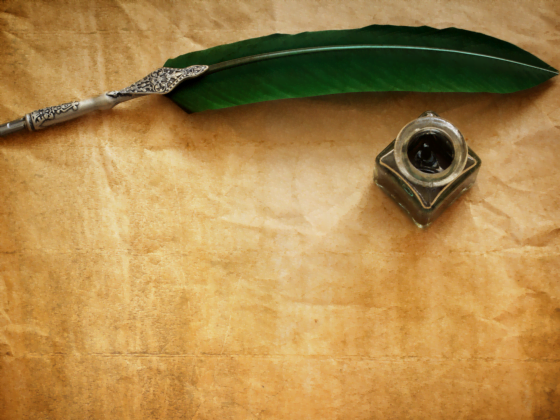QUESTION:
Al-Shaykh al-Kulaynī authored a chapter titled
Women do not inherit anything from property’ where he narrated from al-Imam Abū Jaʻfar al-Bāqir (peace be upon them) that he said: “Women do not inherit from land and property anything.”
And Al-Shaykh al-Ṭūsi narrated in Tahdhib al-Aḥkām from Muyassir that he said:
I asked Abū Abdillah (peace be upon him) about what women inherit, so he said, ‘They can have their share from the value of bricks, building, wood and reeds, but they cannot inherit land and property.’
And from ʻAbd al-Malik ibn ‘Aʻyan who narrates from one of the two Imams (Abū Jaʻfar or Abū Abdillah) who said:
Women do not receive anything from houses and property.
So according to this, there is no right for Fatima (peace be upon her) to demand the inheritance of the Messenger of Allah (peace and blessings upon him and his family).
Also, what is for the Messenger is for the Imām as narrated:
Muḥammad ibn Yaḥya, from Aḥmad ibn Muḥammad who has narrated in a marfūʻ manner from ʻAmr ibn Shimr, from Jābir, from Abū Jaʻfar, who has said the following:
The Messenger of Allah has said, ‘Allah created Adam and granted the world to him. Whatever belonged to Adam belongs to the Messenger of Allah and whatever belonged to the Messenger of Allah belongs to the Imams from the household of Muhammad.’
And the first Imām is ʻAli (peace be upon him) according to the Shīʻah, therefore he is more worthy of demanding the land of Fadak, and we do not see that he did so. In fact, he’s the one who said:
…If I wished I could have taken the way leading towards (worldly pleasures like) pure honey, fine wheat, and silk clothes but it cannot be that my passions lead me and greed take me to choosing good meals while in the Ḥijāz or in Yamāmah there may be people who have no hope of getting bread or who do not have a full meal…
ANSWER:
In the Name of Allah, the All-Beneficent, the All-Merciful.
May Allah bless Muhammad and his Family and damn their enemies.
Using these narrations as proof proves the ignorance of the enemy regarding Shīʻah jurisprudence. These narrations concern wives, and not daughters! The wife does not inherit anything from land or property, whereas for the daughters, they do inherit property and land. This is an agreed-upon consensus among the Shīʻah.
If these ignorant people read properly, they would understand as, in the same chapter, this is explained by other narrations.
It is narrated from Zurārah ibn ‘Aʻyan from Abū Jaʻfar (al-Bāqir) (peace be upon him) that he said:
A woman does not inherit from her husband what he has left of the towns, houses…
Notice his saying (peace be upon him),
from her husband,
not that she does not inherit what her father has left.
The enemy has also cut-off some of the narrations used to prove this claim, as after his (peace be upon him) words:
As for the land and property, then there is no inheritance in it for her”, he (peace be upon him) explained that: “It is because women do not have their lineage whereby they can inherit. She is an addition to them. It is also because when she gets married and brings her husband or children from other people, it can cause trouble for the heirs.”
Here, the Imam (peace be upon him) explains the reason against the wife inheriting, and that is because she is an outsider, and there is no lineage between her and the husband. As for the daughter, she is clearly not an outsider, and therefore she is eligible to inherit land and property.
As for the second issue, the enemy thought that Fadak is not the inheritance of al-Zahra (peace be upon her) because it is the inheritance of the Commander of the Faithful (peace be upon him), and it entered the mind of the arguer that the right of the Infallibles (peace be upon them) is one, which is like saying the right of the Prophets (peace be upon them) is one.
The ownership of the Prophet is the ownership of Fatima, ʻAli, al-Ḥasan, al-Ḥusayn, and the rest of the infallible Imams (peace be upon them all). The land of Fadak was the gift of the Prophet (peace and blessings be upon him and his family) to his daughter, the leader of the women of paradise (peace be upon her). She received it during his life and it was in her hand when he (peace and blessings upon him and his family) was martyred.
And the narration the enemy used was understood wrongly by him, for it does not regard inheritance. It is only about the fact that the Infallibles are more worthy of the land and what’s on it, so what the people have [owned] is what has been legalized [made free] by the Infallibles, such as the khums. Otherwise, the land belongs to Allah and He inherits it to whomever He wills from His servants, and they are His proof upon the creations.
To clarify, the narration does not disregard the inheritance of Fatima (peace be upon her) as she is within the title of the Imam by the general meaning, as she is the proof of Allah upon us, and upon the Imams (blessings of Allah upon them).
The Office of Sheikh al-Habib





